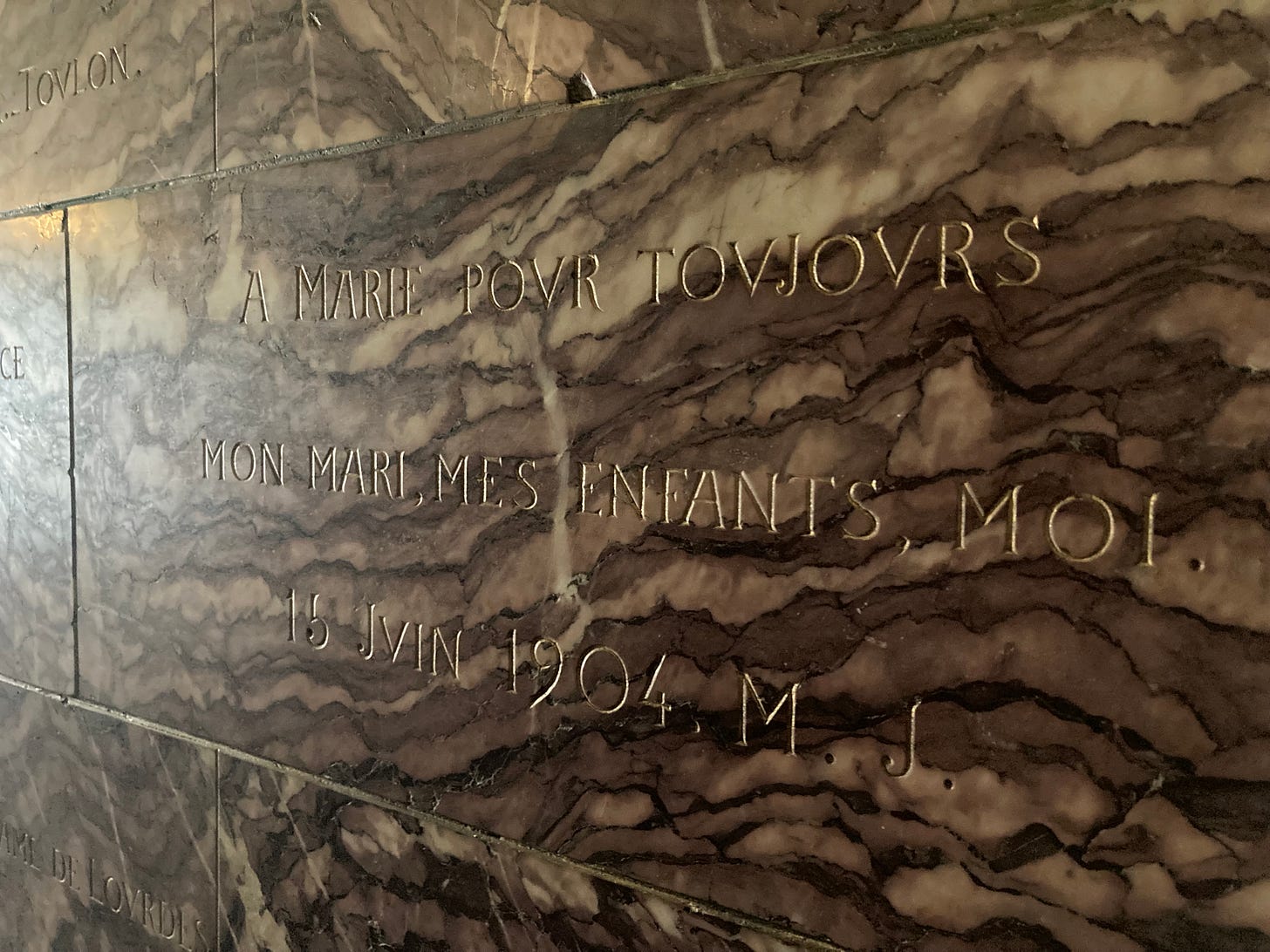I planned to spend my pilgrimage lighting candles in far-off churches, bringing small prayers of light into the darkness.
Instead I ambled like an astonished alien from another planet, walking in stupefied circles around chapels, craning my head up at the ceilings, staring at wall after wall of ex-voto offerings.
Allow me to tell you more, because until I Googled “marble stone for thanks in church,” I didn’t know the plaques had a name. Turns out they have a long history dating back to ancient Egypt, the gifts of gratitude offer in thanksgiving for healing or protection or answered prayer, the physical testimonies left to encourage others who come to holy sites seeking the same.
In Europe the ex-votos are often stone or marble plaques with inscriptions to Mary or the saints: for a healing, for a blessing, for a brother saved in battle, for a child’s protection from illness.
You can see crutches left behind by the once-wounded, now-walking or photos of smiling babies who lived. One small church on France’s coast is bursting with model boats from sailors who survived fierce storms. Google tells me ex-votos can range from soldiers’ bullet-scarred helmets to tiny replicas of body parts healed, the whole scope of human suffering, hope, and salvation.
Meager offerings for miracles, but they are all we have, mere prose in prayer. So we line walls upon walls, trying to engrave gratitude in marble and stone. Is it enough?
Could anything even be adequate for an answered prayer?
//
Because it’s yours truly, forever probing the darker flip side, I spent many of my ambling hours in churches wondering about the people who didn’t leave their thanks.
The prayers that weren’t answered. The sons who died in war. The babies never born. The healings that didn’t happen. The conversions that never came.
Not a single marble plaque, chiseled in permanence and plated in gold, reads I didn’t get what I wanted. Yet you and I and every human we know could tell this story, too. These are the mysteries of faith: how grace is not a money-back guarantee, how saints aren’t slot machines, how God’s ways are not our ways.
In darker moments, I wanted to kick my feet against those lofty columns soaring to the heavens, singing the happy praises of The Lucky Ones For Whom Everything Works Out. (This envy, I know, is a lie but one I must work daily to shake.)
But I couldn’t help thinking about you, too.




